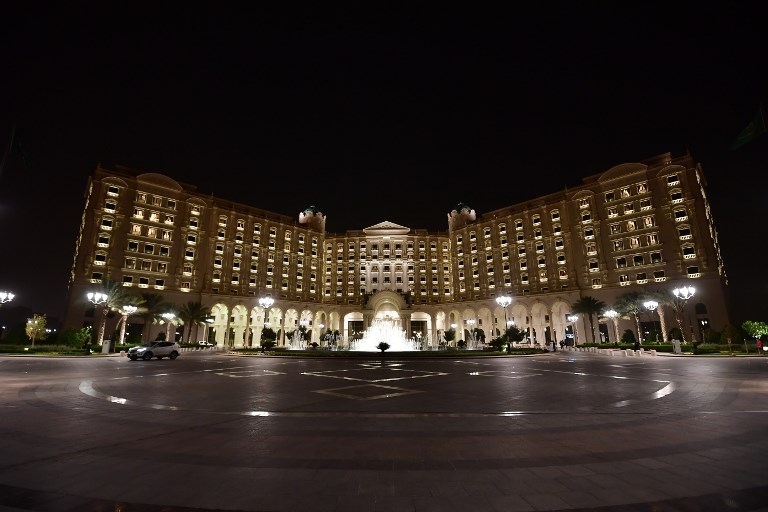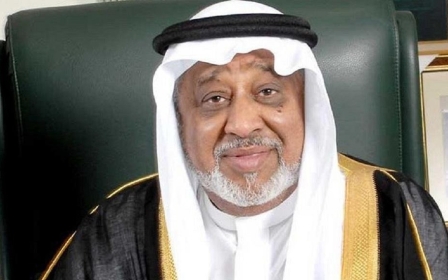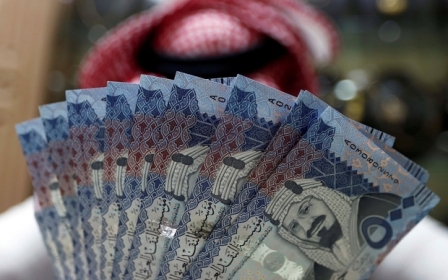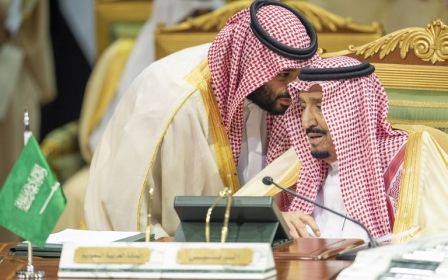Saudi Arabia frees Ethiopian-born tycoon from detention

Saudi Arabia has freed Saudi-Ethiopian businessman Mohammed Hussein al-Amoudi more than 14 months after he was detained in a crackdown on corruption, the latest in a flurry of releases as the kingdom faces intense scrutiny over its human rights record.
Amoudi, 72, was among scores of members of the Saudi business and political elite rounded up and held in Riyadh's Ritz-Carlton Hotel in November 2017 on the orders of Crown Prince Mohammed bin Salman (MBS).
The campaign, decried by some critics as a mere power play by the powerful young heir apparent, unsettled foreign investors whom Riyadh was courting to support ambitious economic reforms, Reuters said.
Amoudi, born in Ethiopia and a Saudi citizen, was once considered one of the world’s richest people, with a net worth of as much as $15bn, according to Forbes. Still, his unexplained detention raised questions about his ownership of a far-flung business empire that includes Swedish oil assets, Ethiopian agriculture and Saudi construction and real estate, the Wall Street Journal said.
A person familiar with Amoudi’s situation told the WSJ: “He paid and he paid a lot” for his freedom. Amoudi’s attorneys specified that his non-Saudi businesses remained independently managed but didn’t address his considerable holdings inside the kingdom.
Amoudi's release follows that of several other businessmen last week and comes after the kingdom suffered a global backlash over the murder of journalist Jamal Khashoggi and the reported torture of women activists.
The day before his release, his attorneys confirmed that Amoudi was alive, hadn’t been tortured and was living comfortably, the WSJ reported. His attorneys said he hadn’t been charged formally with a crime.
On Sunday, Ethiopian state television was the first to report he had been freed. A family office spokesman said Amoudi had returned home to the western city of Jeddah.
Ethiopian Prime Minister Abiy Ahmed also confirmed Amoudi's release on Twitter, saying he had raised the issue with MBS during a trip to Riyadh last May.
Some of those detained at the Ritz were released after agreeing to secret settlement deals with the Saudi authorities, who said they planned to seize more than $100bn this way.
The Saudi authorities did not immediately respond to a request for comment.
At least eight other people held as part of the corruption crackdown were released last week, sources told Reuters. They include businessman Amr Dabbagh, former Mecca mayor Osama al-Bar, and Ibrahim al-Muaqel, who headed the Human Resources Development Fund under the then labour minister Adel Fakieh.
Fakieh is believed to still be in prison, along with former Riyadh governor Prince Turki bin Abdullah and Saudi-American physician Walid al-Fitaihi.
Bakr bin Laden, who was chairman of builder Saudi Binladin Group before the state seized more than a third of the family-run firm last year, was released temporarily last week to attend a funeral. It was unclear if he would return to detention.
After the Ritz reopened to the public last February, those still being held were transferred to other locations, including a Riyadh prison.
The public prosecutor said last year that detainees who refused to settle with the government would be put on trial, but his office has not provided a public update in nearly a year.
MBS said last October that eight people were still being held. The recent releases suggest a higher number.
Dozens of clerics, intellectuals and activists are also still believed to be held in an apparent crackdown on dissent over the past 18 months. Among them are several women's rights activists held since last summer.
The authorities have accused some dissidents of belonging to the outlawed Muslim Brotherhood and supporting Qatar, which is locked in a dispute with Riyadh.
Some detainees have reportedly been tortured, which the government denies.
Muslim clerics Mohammed al-Mohaisany and Mamdouh al-Harbi have also been released in recent days, according to activists and online videos showing them in public.
A group of British lawmakers last week joined international rights groups in calling on Riyadh to allow access to independent monitors.
New MEE newsletter: Jerusalem Dispatch
Sign up to get the latest insights and analysis on Israel-Palestine, alongside Turkey Unpacked and other MEE newsletters
Middle East Eye delivers independent and unrivalled coverage and analysis of the Middle East, North Africa and beyond. To learn more about republishing this content and the associated fees, please fill out this form. More about MEE can be found here.




